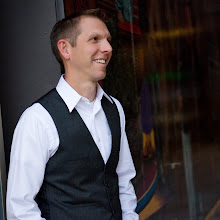The immense human suffering in the rubble of Port-Au-Prince, Haiti has captivated the world and aroused human compassion in every geologic and cultural corner... and that is a good thing. On the quieter end of the news, last week marked the 37th anniversary of Roe v. Wade and the legalization of abortion. Since that decision, 50 million little lives have been terminated in their mother's womb. Currently 3,500 babies die in abortions every day. It is a calamity the size of Haiti every 57 days - a tragedy the size of 9/11 everyday for 13,541 days straight.
It is hip to be "for Haiti" right now, but does our check-writing and well-wishing from a distance betray a self-righteous agenda - especially while the ubiquitous, tragic consequences of abortion remain largely unaddressed (or at least with much less zeal)? Can our charitable efforts for Haiti be rightly motivated if we are not moved to action on behalf of the unborn in our neighborhoods? What does it say about our actions in either area if we are happy to write a check but inconvenienced by personally engaging the real people in these struggles with compassion and mercy?

In Luke 7:36-50, Jesus finds himself in the home of a holy man. He is the guest of honor. The party is awkwardly interrupted by a prostitute who throws herself at Christ's feet in cathartic fit of sorrow and gratitude. Simon, the holy man, is indignant and uncomfortable in this display. Although, he has "welcomed" this woman into his house as an act of charity, he wants nothing to do with her (and her sin). Jesus' response to Simon, reveals his self-righteousness and cuts to the issue of genuine compassion.
Genuine compassion is fueled by a knowledge of personal neediness and grace received. "He who is forgiven much loves much" or, say it another way, "He who is forgive little loves little (to self-righteously promote self)."
Find out what this exchanges has to say about our contemporary "compassion" for Haiti and the unborn in this message.
Additional Resources
Overturning and Undermining Roe v. Wade: An Interview with Clarke Forsythe
Doug Groothuis on Fetus Fatigue
Questioning God Over Haiti - at theResurgence.com
Haiti earthquake updates from Compassion International
The Goal of the Gospel - the last Chapter of "The Normal Christian Life" by Watchman Nee
Discussion Questions









0 comments:
Post a Comment